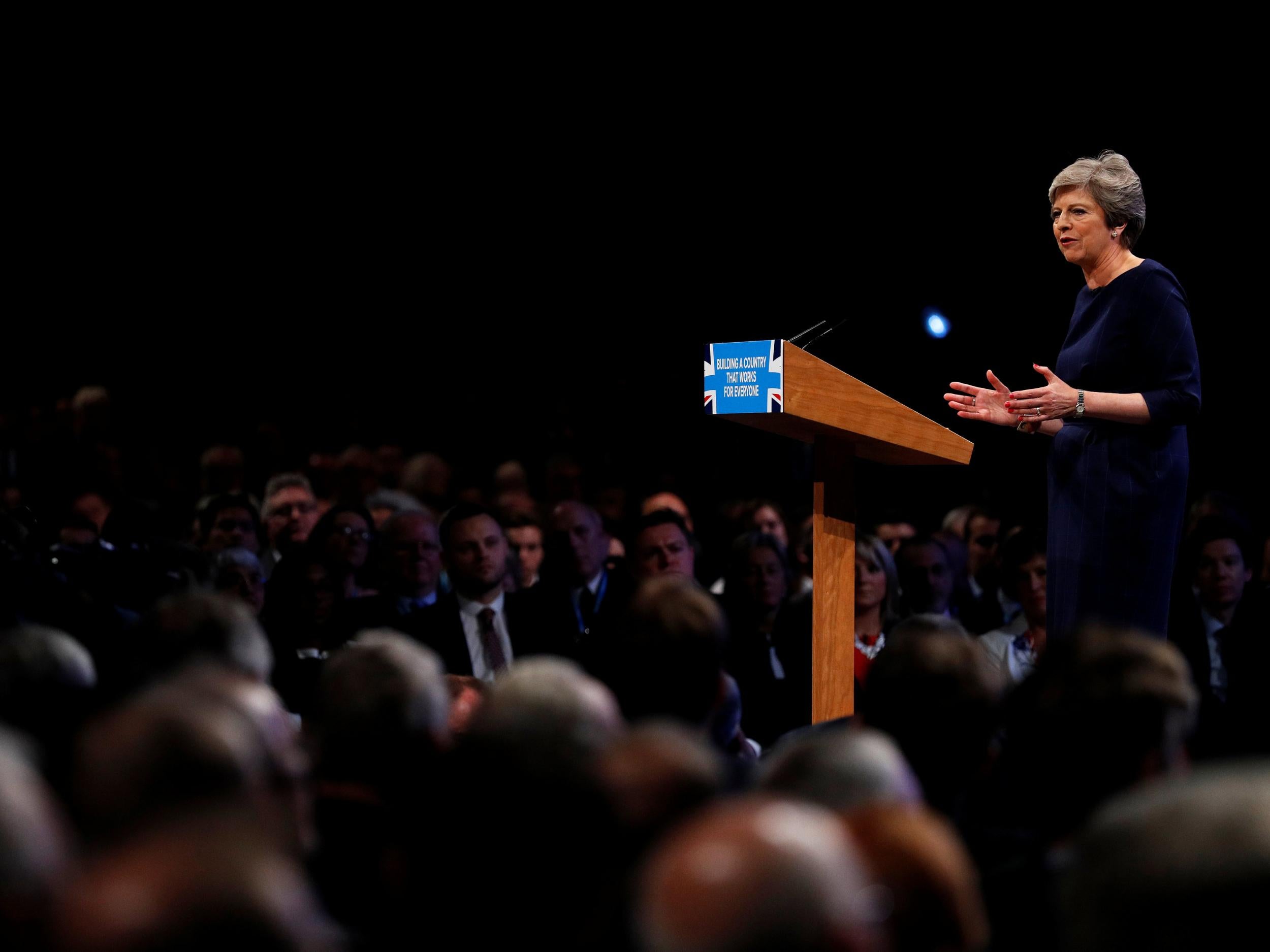May pledges overhaul as 12 million consumers face crippling costs on default energy contracts
Could a price cap make things worse?

Your support helps us to tell the story
From reproductive rights to climate change to Big Tech, The Independent is on the ground when the story is developing. Whether it's investigating the financials of Elon Musk's pro-Trump PAC or producing our latest documentary, 'The A Word', which shines a light on the American women fighting for reproductive rights, we know how important it is to parse out the facts from the messaging.
At such a critical moment in US history, we need reporters on the ground. Your donation allows us to keep sending journalists to speak to both sides of the story.
The Independent is trusted by Americans across the entire political spectrum. And unlike many other quality news outlets, we choose not to lock Americans out of our reporting and analysis with paywalls. We believe quality journalism should be available to everyone, paid for by those who can afford it.
Your support makes all the difference.We know that sliding onto a mortgage SVR, or standard variable rate, is bad for our wealth. But until now the huge numbers of people facing eye-watering bills simply by being moved to their energy supplier’s SVT – standard variable tariff – have been largely ignored.
Coming to the end of a fixed term deal, millions of bill payers automatically slip over onto their supplier’s standard price without a fixed deal or term – paying hundreds of pounds over the odds for their energy as consumer electricity and gas prices continue to soar.
New analysis from Citizens Advice has found that energy costs have risen by three times the rate of inflation in the past 12 months alone, with those on the “Big Six” providers’ dual fuel SVTs seeing their already high bills increase by £90 a year.
Standard steal
SVT customers make up the majority of suppliers’ users, including a disproportionately high number of elderly and vulnerable people. On average, they are paying around £300 more for their energy than is necessary every year – a figure that can vary as the supplier sees fit because of the lack of fixed deal.
With all the major providers increasing their SVT prices over the last year by an average of more than 8 per cent, Citizens Advice this week called for energy suppliers to be set annual targets for getting their customers off expensive default tariffs by 2020.
Poorer pensioners, disabled people and low income families are worst affected by these price rises, research from the charity has previously found, spending more than 11 per cent of their income on gas and electricity compared with 5 per cent among other households.
While there are some signs of gradual change, such as E.on’s announcement last month that it plans to replace its SVT with a rolling, one-year fixed-term default tariff, the fear among campaigners is that it will become “a situation of one bad deal replacing another”.
“One large energy supplier after another has hiked up the prices of already expensive default tariffs – putting huge additional pressure on people who are struggling to meet everyday costs,” says Victoria MacGregor, director of energy at Citizens Advice.
“The poorest pensioners and families on standard variable tariffs continue to lose out whilst debate about how to cap costs continues,” she adds, calling for electricity and gas regulator Ofgem to immediately limit rising bills for the poorest energy customers by capping costs for all those eligible for the Warm Home Discount as a first step.
Cap in hand
That debate ramped up this week as Prime Minister Theresa May pledged to introduce a price cap in response to pressure from MPs.
But how it will work remains unclear and some experts warn such a move could in fact make matters worse. “However well-intentioned, any type of price cap, whether relative or absolute, will give customers a false sense of security and leave the millions languishing on expensive standard variable tariffs in a situation where they believe the price they’re paying for their energy is fair and accurate,” said Stephen Murray, energy specialist at MoneySuperMarket.
“A relative price cap is unlikely to have any direct impact on the price of standard variable tariffs, but it is likely to reduce the availability of the cheapest tariffs in the market. Fewer people switching will also discourage new entrants to the market, meaning fewer challengers driving competition and innovation.
Comparison crisis
“As we approach winter, consumers should ignore any plans for political or industry intervention, take matters into their own hands and switch their energy supplier immediately. Savings are huge if they do, and by switching to a competitive, fixed rate tariff households could save over £300 a year – any saving offered by a price cap pales by comparison.”
But that’s easier said than done. Changes to regulation now mean comparison websites are no longer required to show deals across the whole market. It means switching sites are permitted to display only a portion of available deals.
Citizens Advice claims its online price comparison tool is the one of the only sites that displays all deals available across the whole market by default.
Join our commenting forum
Join thought-provoking conversations, follow other Independent readers and see their replies
Comments